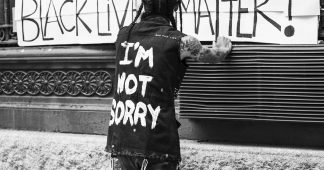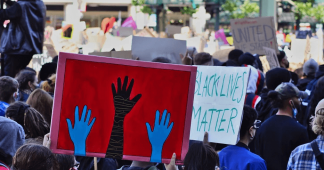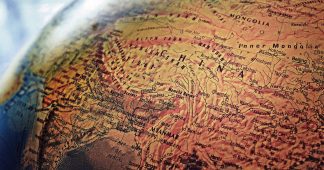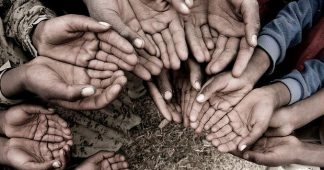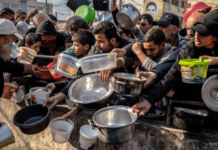Linda Tirado
We tell ourselves little lies to make the world make more sense. Sometimes it’s because we’re looking for reason in madness, sometimes it’s because we’re telling ourselves pretty little falsehoods to avoid guilt. We lie to ourselves and each other about how the nation works, who’s at the top and bottom of various ladders. We find scapegoats for societal ills, to make them into something separate from ourselves.
Right now, we are looking for a story that lets us assign blame for terror and racism. The uprising in Charlottesville has knocked the wind out of us, and it is only natural to hope that the blame can be placed on something impersonal, to believe that no human being might simply be addicted to hate.
That’s likely how it came to be that former congressman and mayor of Atlanta, Andrew Young, appeared on NBC’s “Meet the Press” to say this:
“Most of the issues that we’re dealing with now are related to poverty. But we still want to put everything in a racial context. The problem with the—and the reason I feel uncomfortable condemning the Klan types is—they are almost the poorest of the poor.
They are the forgotten Americans. And, um, they have been used and abused and neglected. Instead of giving them affordable health care, they give them black lung jobs, and they’re happy.
And that just doesn’t make sense in today’s world. And they see progress in the black community and on television and everywhere and they don’t share it.”
It is a good impulse to look for structural reasons for social ills. But it goes too far when it removes agency from human beings. Poverty, even the crushing sort that has you rolling pennies to buy milk, does not cause bigotry. One does not conceive a love of genocide because the economy tanks. We choose what we say, and whom we hurt.
If poverty were a causal effect for racism, then you would not expect to see quite so many virulent racists in the upper classes. David Duke and Richard Spencer were both children of some privilege. Stephen Miller didn’t grow up in straitened circumstances. These are the men who stoke the fears and resentments of the lower classes, who manipulate and misinform.
Lyndon Johnson famously said, “If you can convince the lowest white man he’s better than the best colored man, he won’t notice you’re picking his pocket. Hell, give him somebody to look down on, and he’ll empty his pockets for you.” He wasn’t wrong, and that strategy has been used to great effect over the centuries. It’s why we have de facto segregation, it’s why we pushed through welfare reform using the boogeyman of the “welfare queen,” and it’s why the same crime gets you a different sentence depending on what color you are. Find a bit of structural racism, and behind it you’ll find a white politician pandering to the worst parts of human nature to gain or hold power.
But there is a difference between misinformation and hate. I know many good people who support bad policies; they are well-intentioned but misinformed. I don’t know many good people who take pleasure in terrorizing others, who would join hate groups and call it a fight for utopia. We live under crushing poverty and manage to not kill our horrible bosses or the uncaring bill collectors; we can surely manage to not join the Klan.
There is no excuse for willful evil, even if someone’s life is filled with pain and desperation. Someone who is very poor has few choices, but the things you can choose are all about what sort of person you want to be. It’s the one thing you can control, the one thing you can’t lose and nobody can take from you. Those choices are intentional, adult decisions. To explain them away is to say that the poor are incapable of moral reasoning. In our quest to be reasonable and kind to the less fortunate, we risk making them not human at all.
One day we will have a conversation about race in the upper classes, about the people who make the laws and set the narratives and peddle these lies. Today is not that day, and sometimes it seems like that day might never come. For now, it is enough to say: The poor cannot afford illusions about themselves or their lives. At least give them respect that any autonomous human deserves, and call evil “evil” without equivocation.
Poverty does not cause bigotry, no matter how comforting it might be to tell ourselves it does.
Published at talkpoverty.org
We remind our readers that publication of articles on our site does not mean that we agree with what is written. Our policy is to publish anything which we consider of interest, so as to assist our readers in forming their opinions. Sometimes we even publish articles with which we totally disagree, since we believe it is important for our readers to be informed on as wide a spectrum of views as possible.
